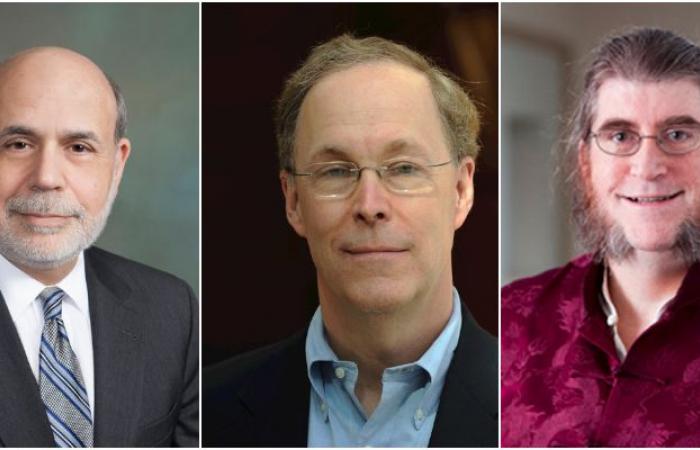The 2022 Nobel Prize in Economics was awarded to former US Federal Reserve Chairman Ben S. Bernanke and economists Douglas W. Diamond and Philip H. Dybvig “for their research on banking and financial crises”. The important award is not technically a Nobel like the others, but a Bank of Sweden prize for economic sciences in memory of Alfred Nobel.
According to the Nobel Prize Commission, the three economists awarded today have made it possible to significantly improve knowledge on the role of banks in economic cycles, and in particular during financial crises. Their studies have shown how important it is to prevent banks from failing, providing tools to temporarily support them if necessary, to avoid even more serious repercussions on the economy.
In the early 1980s, Bernanke, Diamond and Dybvig were among the first to investigate the problems of banks and how to make them less vulnerable in times of crisis. From their research, rules and laws would then emerge to regulate the financial markets.
In the economic system that has established itself during the twentieth century, savings must be made to flow into investments. The problem is that those with savings often want to be able to access their money as quickly as possible, while individuals and companies want guarantees on the payment of their mortgages or loans. Diamond and Dybvig have shown how banks are an ideal solution to this problem: they act as intermediaries, accepting deposits of money from many savers, in order to always offer access to credit to those who want it, but making loans and investments equally possible. in the long run that keep part of the money raised busy for a long time.
Also Diamond and Dybvig have shown how this dual nature makes banks particularly exposed in the event that rumors spread about their possible, and imminent, bankruptcy. If many savers rush to withdraw the money from their accounts, fearing that it might come to a bad end, the bank can no longer support its other activities starting with mortgages and loans, ending in bankruptcy. This is why the guarantees offered by governments are important: knowing that they will be able to intervene to save a bank or that every current account is guaranteed within a certain amount, medium-small savers (more numerous in large banks than very rich ones) are less likely to withdraw their money if things look bad.
Bernanke devoted an important part of his studies to the Great Depression, the severe global economic and financial crisis that began in the late 1920s. He analyzed the behavior and evolution in the management of banks when crises become long and ever deeper. One of the consequences of the bank failure in the 1930s was the loss of important information on the credit access system, which then had consequences on the ability of companies to direct their savings towards productive investments.
Ben Shalom Bernanke was born in 1953 in Augusta (Georgia, United States) and was chairman of the Federal Reserve, the central bank of the United States, from 2006 to 2014. During his tenure he therefore had to face the serious financial and economic crisis that began in 2008, often receiving criticism for not having foreseen the worsening of the economy in time and for some measures adopted in the first years of the crisis, mainly oriented to the rescue of Wall Street. .
Douglas W. Diamond was born in 1953, received a doctorate from Yale University in 1980 and is a lecturer at the University of Chicago.
Philip H. Dybvig was born in 1955, received a doctorate in 1979 from yale University and is a lecturer at Washington University.






